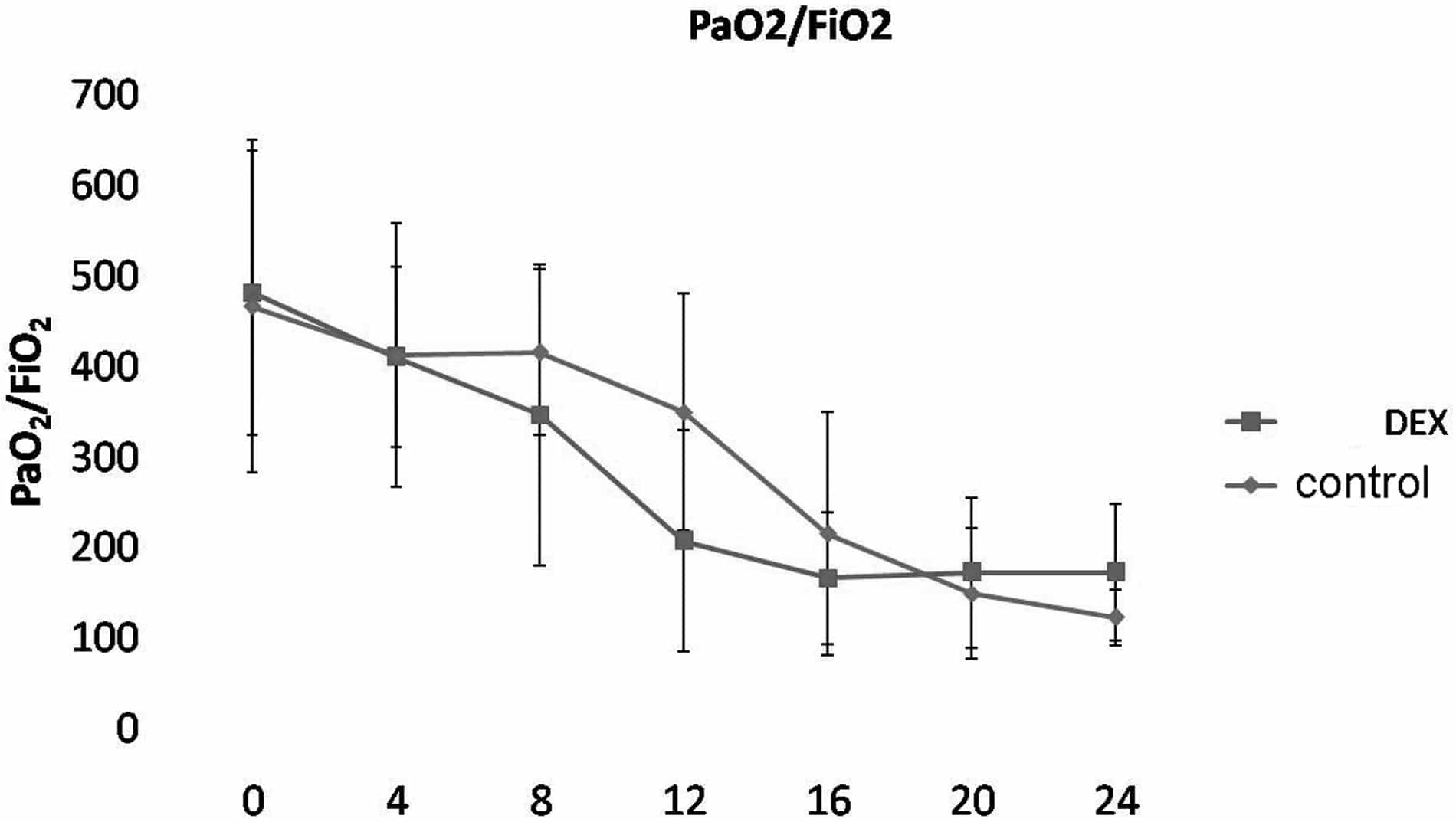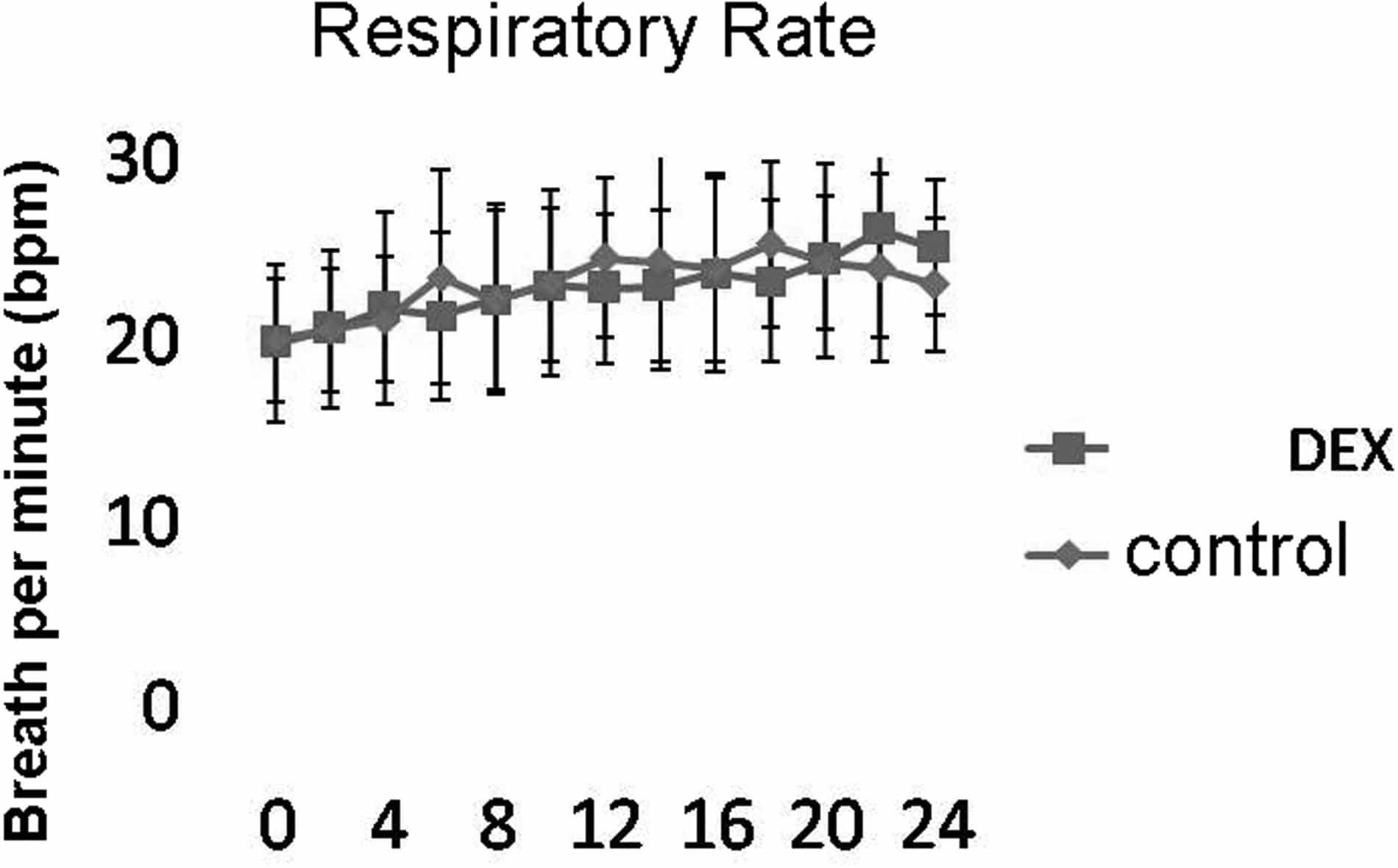Dexmedetomidine is a potent sedative, analgesic and sympatholytic agent. The sympatholytic effects of Dexmeditomidine are associated with decrease in endogenous concentrations of noradrenaline resulting in dose-dependant decreases in arterial blood pressure and heart rate that lead to perioperative hemodynamic stability with a decrease risk of adverse perioperative cardiac events(1,2). Series of case reports by Tobias et. al enhanced the focus on the usage of Dexmedetomidine among pediatric patients(3). The objective of this study was to assess the respiratory profiles including respiratory rate, SPO2 and PaO2/ FIO2 ratio of pediatric patients on Dexmedetomidine. It is hoped that we may evaluate the potential benefits of Dexmeditomidine in pediatric cardiac patients. The study was randomized controlled double blinded comparing Dexmedetomidine sedation to institution’s standard for postsurgical sedation. The study was approved by the institution’s ethical committee. Patients were randomized in a 1:1 fashion into two study arms, Group A received infusion of dexmedetomidine between 0.1 to 0.7 mcg/kg/hr (n= 25) and Group B, as control group received midazolam between 0.5 to 2 mcg/kg/min (n: 25). The drug infusion was performed under strict protocol by the anesthesiologist involved. The study drugs were started after patients arrived in ICU with stable haemodynamic. Results showed no significant differences in respiratory rate; O2 saturations; arterial pH and PaCO2 between both groups compared (p>0.05). Although the arterial partial O2 tension (PaO2): fractional inspire O2 (FiO2) ratios were slightly lower in dexmeditomidine group, they was not significantly different from the control group (p>0.05). Our observation tends to show that dexmeditomidine does not have clinically important adverse impacts on respiration in the postsurgical paediatric patients who requires intensive care. Hence it appears that dexmeditomidine is safe for post operation sedation in selected paediatric heart surgery(4).
University College Dublin (2009) Proc Physiol Soc 15, C2
Oral Communications: The respiratory profiles of Dexmedetomidine in paediatric patients following cardiac surgery
N. J. Nordin1, S. Kadiman2, F. Jaffar2, S. Hamil3
1. Physiology, Science Islam University of Malaysia, Kuala Lumpur, Wilayah Persekutuan, Malaysia. 2. Anaesthesiology, National Heart Institute, Malaysia, Kuala Lumpur, Wilayah Persekutuan, Malaysia. 3. Physiology, National University Malaysia, Kuala Lumpur, Wilayah Persekutuan, Malaysia.
View other abstracts by:
Where applicable, experiments conform with Society ethical requirements.


